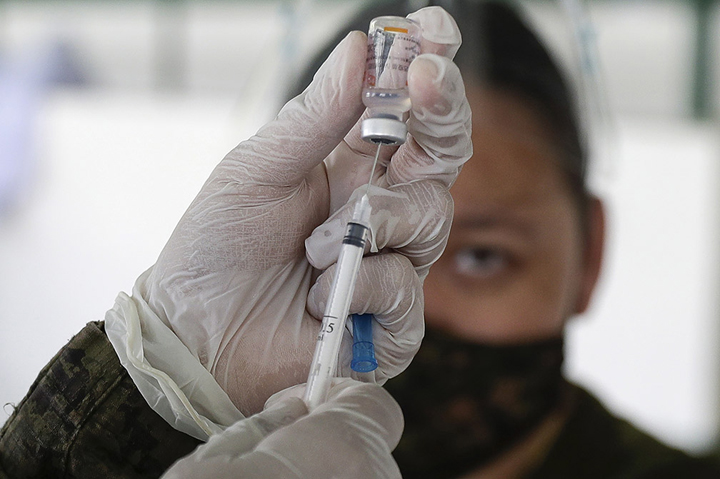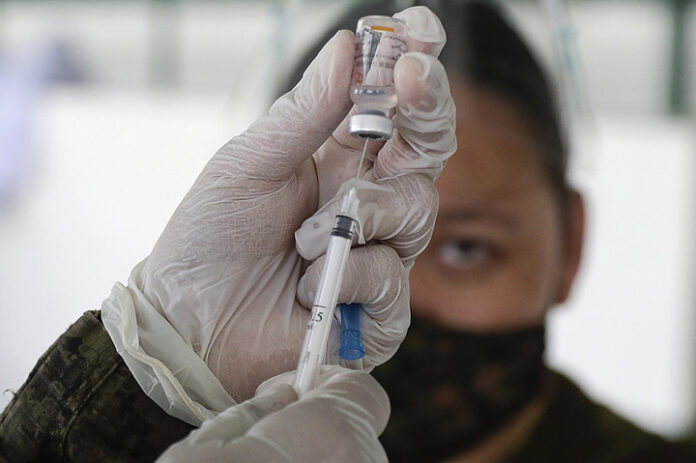
With more than a thousand small and large companies procuring Covid-19 vaccines for their workers, the Presidential Adviser for Entrepreneurship appealed to the government to give the private sector “flexibility” in their vaccination rollout.
During the joint hearing of the House Committee on Health and House Committee on Trade and Industry, Presidential Adviser for Entrepreneurship Joey Concepcion said flexibility should be given to private companies as their workers belong to different priority groups under the A4 list.
“We want to appeal to DOH [Department of Health] and NITAG [National Immunization Technical Advisory Group] to give private sector the flexibility because if you look at the industry here there are so many industries that have different positions. We should allow them [to roll out the vaccine program] with flexibility,” he said.
“People are not present in certain times but they belong to a particular company. We should allow them to just inoculate those listed in A4 [with flexibility]. I think that is important.”
According to Concepcion, 751 micro, small and medium enterprises (MSMEs) and 253 large enterprises have so far procured Covid-19 vaccines from AstraZeneca, Moderna, Novavax and Bharat of India. “[A total of] 751 MSMEs companies bought 590,996 doses while 253 large enterprises bought about 6,003,486 doses, of which 50 percent will be donated to national government. The donations from private sector will be taken at the back end. They will be taken towards the end or after private sector vaccinates its employees,” he added.
Currently, there are 19 sectors belonging to the A4 group, including commuter transport, public and private wet and dry market vendors, frontline workers in groceries, supermarkets, delivery services and workers in manufacturing for food, beverage, medical and pharmaceutical products.
Moreover, Concepcion said the private sector has always been a strong partner of the national government in addressing the Covid-19 pandemic.
“It’s difficult to balance health and livelihood by doing what we are doing in the last 12 months like wearing face mask and face shield and social distancing–does that help no doubt about that. But our problem will be solved by vaccine. In other countries, they vaccinated most of their citizens and you can see economic activities are coming back.”
Partnership
Also, Concepcion said the private sector has the liberty to choose their local government partners.
“Each private sector has the liberty to choose what center they want to do whether they want to do it with LGUs [local government units] it is still fine,” he said.
“If LGU and private sector, and the national government can do this together with great speed, then there is a great chance by end of the year we would be able to vaccinate a great number of people. I believe that there is a great hope by fourth quarter of the year.”
Opportunities
In a related development, San Jose Del Monte (SJDM) Rep. Florida Robes has declared that the local government of San Jose Del Monte has allotted an initial P100 million for the purchase of Covid-19 vaccines from different manufacturers.
Robes said vaccination will help them resume employment and take advantage of income opportunities in the so-called Human Resource Capital of the Philippines.
In an interview, Robes said the city government is finalizing tripartite agreements with several producers for the purchase of vaccines that will cover all the eligible residents in the city. The city has over one million residents.
“The city government of SJDM has allotted an initial amount of P100 million for the purchase of vaccines and additional funding will be allotted depending on the final cost of the vaccines and actual number of those who will get the vaccines,” she said.
She added that the local government is are aiming to vaccinate 75 percent of eligible residents by the end of this year to achieve herd immunity. The remaining 25 percent will be vaccinated in the first quarter of 2022 but this will depend on the vaccine procurement of the national government.
“We were assured by Inter-Agency Task Force for the Management of Emerging Infectious Diseases Chairperson, Secretary Carlito Galvez, that sufficient vaccines will arrive in the country by middle of this year until end third quarter of this year,” she said.
The city has inoculated nearly 90 percent of health workers being targeted for vaccination. Latest data from the city’s Public Information Office showed that as of April 6, the city health department had vaccinated 3,459 out of the 3,895 health workers or 88.81 percent of their target. They were given either Sinovac or AstraZeneca.
The city has likewise already vaccinated 100 percent of the 220 targeted people with co-morbidities under the A3 category.
Read full article on BusinessMirror

